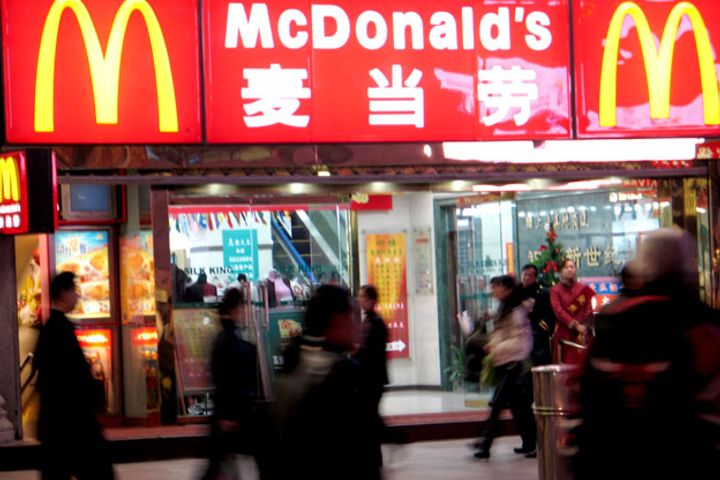 McDonald's China's New Moniker Has Netizens Discussing Translated Brand Names
McDonald's China's New Moniker Has Netizens Discussing Translated Brand Names(Yicai Global) Oct. 26 -- McDonald's China Co. changed its name to Jin Gong Men (China) Co. effective October 12, 2017. Jin Gong Men roughly translates to 'Golden Arches,' and Chinese netizens have hotly discussed the rename.
Many international brands have tried to use a Chinese translation that is memorable as they pursued the market in China. Web users have called the translated names of several companies, including McDonald's, awkward.
Two years after entering China, American short-term lodging platform Airbnb Inc. gave itself a Chinese name -- Aibiying. Its intended meaning was "welcome each other with love," but Chinese netizens said it was strange to pronounce and a weird character combination. Some said it reminded them of Aipincaihuiying, a Chinese song.
Samsung Electronics Co. [KRX:005930] called its Galaxy, Gaileshi, or "a world full of happiness." Many felt it seemed like the name of a knockoff.
MSN went by Meisien in China, and this name sounded like a milk powder brand to many Chinese.
The Chinese translation for photo-sharing application Snapchat is Celabu, which literally means 'salad cloth.'
Digital music service Spotify took the name Shengpotian in China, but people said it reminded them of northern Chinese folk songs.
The Coca-Cola Co.'s name in the 1920s in Shanghai was Kekekenla, which sounds like the Chinese phrase for tadpoles biting wax (the characters also look similar). Coke sales were poor until the company offered a reward of USD462 (GBP350) for a translation and famous Chinese painter and writer Jiang Yi came up with Kekoukele, which the brand still goes by.
Chinese reacted more positively to some international name's translations.
Simmons Pte Ltd.'s translated name, Ximengsi, became a genericized term for mattress. The name contains the character for a place to sit or sleep in warm weather -- Xi.
Luhuanong, the Chinese name for cosmetics firm Revlon Inc. [NYSE:REV], is from a famous poem by Li Bai that describes Emperor Tang Ming Huang's favorite concubine, and many consider it noble and elegant.
Yashilandai, known as The Estée Lauder Companies Inc. in English, brings four characters together. The first three mean 'elegant,' 'poem' and 'orchid,' and the last is frequently used in female names. The character for orchid, Lan, is part of Lankou and Jiaolan, which are the Chinese names of Lancome and Guerlain SA, respectively.
IKEA of Sweden AB took its Chinese moniker, Yijia, from the Book of Songs. It literally means 'pleasant home.'